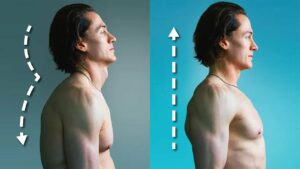In this video, a journalist discusses a study conducted in Switzerland on the Moderna booster vaccine. The study found that 5.1% of participants who received the booster vaccine had increased troponins, indicating cardiomyocyte damage. Additionally, 2.8% of participants experienced vaccine-associated myocardial injury. The journalist expresses concern that regulators need to take notice of this information to ensure public safety. The study was industry-independent and published in a reputable journal. The journalist criticizes the advertising campaign in New Zealand, claiming it is unethical to promote the vaccine without fully informing people of the risks.

Our Summaries are written by our own AI Infrastructure, to save you time on your Health Journey!
Key Insights:
- In a booster vaccine trial in Switzerland, 5.1% of participants who received the booster vaccine had increased cardiac marker damage.
- 2.8% of participants had vaccine-associated myocardial injury.
- This study was industry-independent and conducted by cardiologists and scientists in Switzerland, and it will be published in the European Journal of Heart Failure.
- The study used active surveillance, which is considered a better quality study methodology than retrospective passive surveillance.
- Participants with increased cardiac markers were warned not to exercise to prevent potential severe consequences, such as ventricular fibrillation or cardiac arrest.
- The study showed more myocardial damage in women compared to young men.
- No major adverse cardiac events were reported within 30 days of the study.
- The study suggests that vaccine-associated myocardial injury may be more common than previously thought.
- Regulators worldwide are urged to take immediate action based on this study’s findings.
Transcript
Well, welcome to today’s talk and I’m going to tell you what this is about so you can decide if you want to watch. It’s Wednesday, the 26th of July. Now, if regulators around the world don’t take notice of the information I’m about to give via this paper, then they are at best, in my view, negligent; at worst, I don’t even want to think about it. After Moderna booster vaccines in a trial done in Switzerland, there were 777 working people followed up with 777 controls. 5.1 percent of those who had the booster vaccine had increased troponins, indicating cardiomyocyte damage. So, 5.1 increased cardiac marker damage chemicals in the blood. 2.8 percent of the 777, that is one in 35, had vaccine-associated myocardial injury. Quite astounding and incredible, that’s what this is about. If you want to watch, stick around. I think I can get through it all in about the main points in about 10 minutes. If you want to stay, just before we do that, we’ll just look at this advert from New Zealand. Now, the advertisers in New Zealand say here, we all need to do our part, so vaccinated, stay up to date, and be an everyday hero. And they have pictures of these comic people here, and that’s sponsored by Pfizer-BioNTech.
The idea that there are all these comic people here, I think it’s Marvel Comics, doesn’t really grab me. So, I can only assume it’s aimed at an audience, shall we say younger than me. Some of you might consider that is quite outrageous and utterly unethical. Anyway, let’s get down to the business of today because this is really an impressive study by cardiologists and scientists in Switzerland. Myocardial injury after COVID-19 vaccine, this is the Moderna mRNA-1273 booster. Department of Cardiology and Cardiovascular Research Institute of Basel in Switzerland, of course. Now, this is published in the European Journal of Heart Failure. It’s an open-access journal of the Heart Failure Association of the European Society of Cardiologists. So, top-flight stuff. This paper is accepted, it is peer-reviewed, it’s not yet published. This is a pre-release copy because it’s not a pre-print, because it is peer-reviewed and a fully accepted paper in an international, peer-reviewed reputable journal. It’s a prospective, active surveillance study. So, they started, they went forward, collected the data as they went on, and it’s active surveillance. They were actually looking for things in the past. What we’ve had is a retrospective, passive surveillance. So, it’s been passive in the past. People have only collected data as patients have come forward to complain about it, and it’s been retrospective, looking back. This is a much better quality study all around and has produced really quite worrying results, really. And this study was industry independent. It had nothing to do with the people that are making the money. This study was not carried out by the people that are making the money, independent, instigated by the investigators themselves. So, the aim: they want to look at the incidence and potential mechanism of oligosymptomatic myocardial injury. Oligo means few. Oligosymptomatic myocardial injury, myocardial injury which sometimes has no symptoms or sometimes minimal symptoms. It’s oligosymptomatic, but that doesn’t mean to say they can’t be quite severe consequences. In fact, just before we go on, I think I’ll just tell you something about the potential severe consequences. Now, this is from the textbook of medicine that’s been used for generations now. I just want to read something from this. In most patients, this is talking about myocarditis, in most patients, the disease is self-limiting and the immediate prognosis is excellent. However, death may occur due to ventricular arrhythmia or rapid progressive heart failure. Myocarditis has been reported as a cause of sudden and unexpected death in young athletes. And we could go on and read about longer-term complications, not my words, directly from David’s Principles and Practice of Medicine. Anyway, let’s get back to the study we’re looking at today. This study from Switzerland following COVID-19 mRNA vaccine booster. So this is following boosters. Now, they wanted to check on what was causing this and how often it was occurring. And it’s also very important as a safety net for people that have been boosted. So what they did, if people had raised troponins at three days after the booster, they said, „Look, you’ve got raised troponins after three days. Therefore, let’s go to repeat blood test. Therefore, let’s go to 12-lead ECG or other cardiological investigations as the cardiologists deem fit. Take rest, do not exercise.“ Because if you’ve got myocarditis and you just rest for a few days, good chance it’ll just go away, get better. If you go running or training, there’s a good chance, not a good chance, but there’s a chance you can go into ventricular fibrillation, into a full cardiac arrest. So the fact that these people were warned is so important. Probably not happening where you are, certainly not happening where I am. So this safety netting screening and prevention of complications research methods. So December 2021 to February 2022, hospital employees, mostly healthcare workers, scheduled to undergo booster vaccination, Moderna. They were assessed for vaccine-associated myocardial injury. Blood being taken three days after the vaccine. Defined as an acute dynamic increase in high sensitivity cardiac troponin concentration. Now, we probably know this, but if we have cells here in the heart, these cells that constitute the myocardium. Now, in these cells, there are troponins. Troponins are chemicals in these cells that do with the contraction of the myocardium. Now, if the cell is damaged or insulted in any way, if there’s damage to the cell, then what happens is there’s actually a breach in the integrity of the cell wall and the troponins leak out. So, if these troponins are found in higher concentrations in the blood, it indicates that myocardial cells have been damaged. Very, very simple cardiac marker testing. Absolutely standard to look for troponins in all aspects of coronary care. So, they’re looking for those above age in sex upper limits on day three blood taken 48 to 96 hours after vaccination. And very importantly, there was no alternative cause. So, these patients were screened by proper doctors and scientists. If they had a reason why they might have increased troponins, like they’d just run a marathon, they would be excluded from the study. Other causes of raised troponins were excluded. This is a very thorough, well-conducted study. And I’ve already seen quite a bit of misinformation about this study already, but it is well-conducted. They did exclude other causes of raised troponins. 77 participants, median age 37, more women than men in a healthcare environment. So, working-age adults, minimal risk from severe COVID, almost none. I mean, all these patients have been exposed many times, the healthcare workers almost certainly. Now, 40 participants, 5.1% had high-sensitivity cardiac troponin concentrations on day three that were above the 99th percentile. Already, that’s high. So, 5.1% is already high, showing much higher levels of troponin than you would expect. mRNA-1273 vaccine-associated myocardial injury was adjudicated in 22 participants, 2.8%. One in 35 recipients had vaccine-associated myocardial injury. I’m just going to read that out again. One in 35 of people who received the booster had vaccine-associated myocardial injury. This is a range of adverse reactions. That is off the scale in healthcare, off the scale. And yet, in New Zealand and other places, it’s still being actively and unethically, some might say, promoted. This is just off the scale risk. Off the scale completely. The only way you would take this kind of risk in healthcare is if the alternative was certain death. Otherwise, you certainly wouldn’t. You know, we just don’t take this level of risk. It’s just complete madness. What has happened here? How is this level? Let’s keep to the data of the 777. Two women had chest pain. So what we’re seeing here is most people here did not present with chest pain. And yet, they had this myocardial injury, which could result in ventricular fibrillation and an adverse consequence that is irreversible. Of the 22 cases with mRNA-1273 vaccine-associated myocardial injury, 20 cases occurred in women, two in men. Now, this is the complete reversal of what we got with the passive surveillance. So active surveillance, when we’re actually looking for the issue, is showing more myocardial damage in women as opposed to the passive surveillance where it was more young men that were affected. Interesting picture. This wasn’t looked for actively before. So young women could be fully informed, give informed consent before they were vaccinated. I mean, as adults, we’re allowed to give informed consent for a lot of things. And if we don’t give informed consent, then that changes the meaning completely. Completely changes the meaning of something that occurs if informed consent was not given. And yet, this is the case here. Informed consent has not been given because people have not been informed. They’re not giving informed consent. Therefore, it’s illegal. If you don’t give informed consent for other types of activity, that has legal implications. We have to give informed consent. Moderna mRNA-1273 vaccine-associated myocardial injury was adjudicated in 22 participants, 2.8%. One in 35 recipients (2.8%) had vaccine-associated myocardial injury. Not much more to be said on that. We look forward to an immediate and urgent response from regulators around the world. If we don’t get it, then they just hold themselves up to public mockery, ridicule. What are they there for? What are they there for? If they don’t act on this immediately, we’ll leave it there. Thank you for watching.





